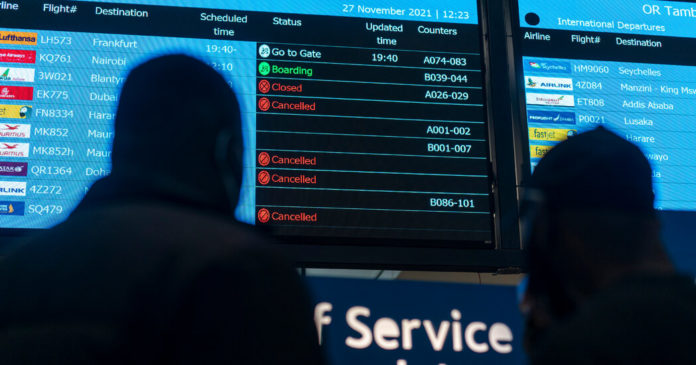At home, scientists said, those countries should ramp up testing and vaccinations and help infected people isolate, especially given the difficulties they were already having containing the Delta variant. Scientists pleaded with countries to match those efforts globally, including with aid to southern Africa for their health systems and vaccination and variant-tracking efforts.
“If all we do is a travel ban, and we don’t increase testing at airports or provide resources for people to isolate if they do test positive so they can justify missing work — all of that would have to be happening to reduce community transmission,” said Joseph Fauver, an assistant professor studying genomic surveillance at the University of Nebraska Medical Center.
After decades of skepticism toward border closures among global health officials, Covid-19 forced experts to re-examine their views, said Alexandra Phelan, a professor studying global health policy at Georgetown University. “We gained a bit of nuance, and realized that travel restrictions have a potential role to play in slowing the spread of a new respiratory disease, even though it doesn’t stop it,” she said.
Still, Dr. Vespignani and his colleagues have shown that even the strictest travel restrictions only modestly delay the spread of the virus without other efforts to cut transmission. And whereas countries had some hope in early 2020 of tracing the contacts of patients from abroad, sequencing the virus takes too long to allow health officials to pick out people infected with the Omicron variant for special containment measures.
“They get dispersed in a sea of thousands and thousands of infections,” Dr. Vespignani said of any new cases of the Omicron variant. “It’s a very, very, very tough situation.”
The latest variant has already shown signs of spreading locally beyond southern Africa. A patient in Belgium, for instance, had no connections with southern Africa, having traveled recently to Egypt, officials said.
Several scientists said they suspected that the variant had been spreading undetected in countries with lackluster sequencing efforts before it surfaced in Botswana and South Africa, giving it more time to scatter globally. Nevertheless, European nations did not find the variant until after South Africa alerted them to it, demonstrating the gaps in their own surveillance efforts. The variant had plenty of opportunities to spread: In November, there were 334 flights scheduled out of southern Africa into Europe, with a capacity of nearly 100,000 seats. And three dozen flights were scheduled from Johannesburg into the United States this month.
Source : Nytimes













